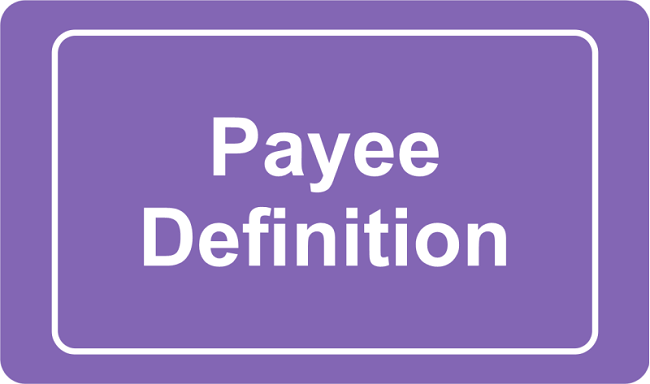Business
Payee: Definition, How They're Paid, Duties, and LimitsWhat is a Payee?A payee is a participant in a transaction who gets payment in exchange for products or services. A payer pays the payee in cash, by cheque, or through other forms of payment. In exchange, the payer receives products or services. The bill of exchange (invoice) often contains the payee's name, which usually indicates a natural person or an organisation like a company, trust, or custodian. 
Understanding a PayeeThere will always be a party providing the services or goods and a party receiving them in any kind of transaction. A payer must give the payee an exchange of value, most frequently money, in order to get goods or services. In a banking scenario, the payee is required to have an open, active account with good standing through which the payer can transfer payments. Of course, this assumes that cash is not used in the transaction. The person who will be receiving the payment is referred to as the payee in the case of a promissory note, which is a document in which one party promises to pay another party a specified amount. The payer is the person who is sending the payment. In the case of bond coupon payments, the person who receives the coupon is known as the payee, while the bond issuer is known as the payer. There may be several payees as well. This is common in electronic transfers when someone takes money out of the payer's account and divides it across several payee allocations. Based on the banking institution, these transactions might need clearance for specific numbers, percentages, and account types. The payer and payee may occasionally be the same person. This may happen whenever someone writes cheques, makes withdrawals and deposits, or electronically moves money from one account to another. To prevent conflicts, it is a good idea to make sure that both the payer and the payee concur on the amount getting transferred. |
 For Videos Join Our Youtube Channel: Join Now
For Videos Join Our Youtube Channel: Join Now
Feedback
- Send your Feedback to [email protected]
Help Others, Please Share










